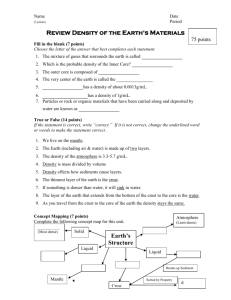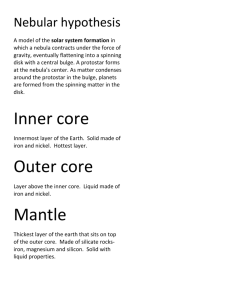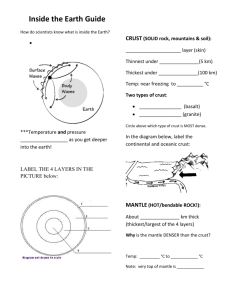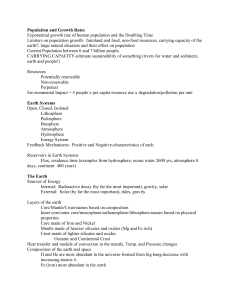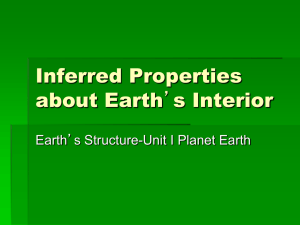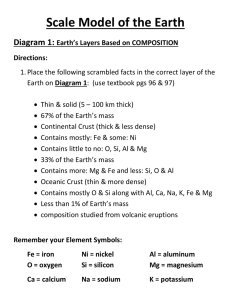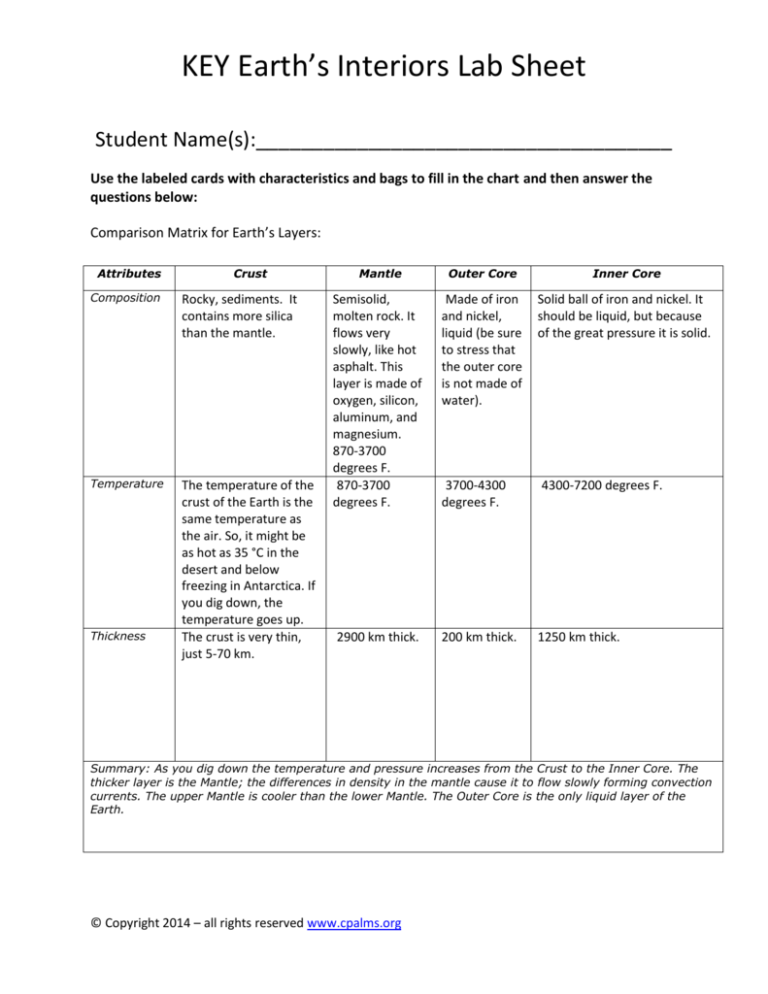
KEY Earth’s Interiors Lab Sheet
Student Name(s):_____________________________________
Use the labeled cards with characteristics and bags to fill in the chart and then answer the
questions below:
Comparison Matrix for Earth’s Layers:
Attributes
Crust
Composition
Rocky, sediments. It
contains more silica
than the mantle.
Temperature
The temperature of the
crust of the Earth is the
same temperature as
the air. So, it might be
as hot as 35 °C in the
desert and below
freezing in Antarctica. If
you dig down, the
temperature goes up.
The crust is very thin,
just 5-70 km.
Thickness
Mantle
Outer Core
Inner Core
Semisolid,
molten rock. It
flows very
slowly, like hot
asphalt. This
layer is made of
oxygen, silicon,
aluminum, and
magnesium.
870-3700
degrees F.
870-3700
degrees F.
Made of iron
and nickel,
liquid (be sure
to stress that
the outer core
is not made of
water).
Solid ball of iron and nickel. It
should be liquid, but because
of the great pressure it is solid.
3700-4300
degrees F.
4300-7200 degrees F.
2900 km thick.
200 km thick.
1250 km thick.
Summary: As you dig down the temperature and pressure increases from the Crust to the Inner Core. The
thicker layer is the Mantle; the differences in density in the mantle cause it to flow slowly forming convection
currents. The upper Mantle is cooler than the lower Mantle. The Outer Core is the only liquid layer of the
Earth.
© Copyright 2014 – all rights reserved www.cpalms.org
KEY Earth’s Interiors Lab Sheet
Student Name(s):_____________________________________
1. What causes the thickness of the crust to vary? Crust, is not always the same. Crust under
the oceans is only about 5 km thick while continental crust can be up to 65 km thick. Also, ocean
crust is made of denser minerals than continental crust.
2. What is the primary composition of each layer?
Crust -Silica
Mantle- oxygen, silicon, aluminum, and magnesium
Outer and Inner Core- iron and nickel
3. How do each of Earth's layers compare to each other?
the thinner is the Crust. From the Crust to the Inner Core
increases.
© Copyright 2014 – all rights reserved www.cpalms.org
The thicker layer is the Mantle and
the temperature and pressure

